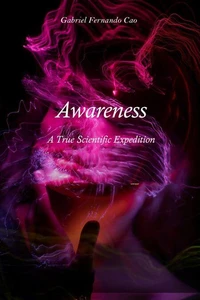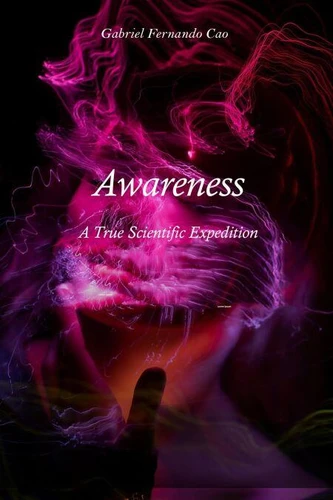Awareness. A True Scientific Expedition is an essay that articulates an intellectual journey through six chapters, in which science, philosophy, and language intertwine to explore the great questions of existence. The text proposes critical and open thinking, moving away from dogmatic answers to invite personal reflection, wonder, and self-knowledge. The first chapter lays the epistemological foundations of the journey, examining how perception does not directly reflect external reality, but rather actively constructs it through neurobiological and historical mechanisms.
At this intersection of sensation and interpretation, the self emerges as an emergent phenomenon. In chapter two, emotional dimension is then addressed, understood as the ontological and evolutionary core of experience. Emotions not only shape individual consciousness but also define our relationship with the environment, acting as an ethical and vital compass. Vulnerability is presented here as a sign of lucidity and depth.
The third chapter unfolds the dialogue between mind and matter, rejecting simplistic dualisms and proposing a complex vision of consciousness as a dynamic process. The cerebral metaphor does not exhaust the human phenomenon: the mental is expressed in a lived symbolic network. The fourth section delves into death as a limiting phenomenon. Through philosophical currents such as existentialism and contemporary scientific perspectives, a redefinition of finitude is proposed, not as a negation but as a path to transformation and freedom.
The fifth chapter presents the emerging phenomenon of artificial intelligence. The ontological, moral, and social implications of creating synthetic entities with cognitive capacity are examined. Can a machine have subjectivity? Who is ethically responsible for its decisions?The sixth chapter focuses on language as the architect of reality. Narrative, symbols, and metaphor not only represent the world: they shape it.
The self is constructed through storytelling, and in this process, a bridge to the other, to meaning and the transcendent, is formed. Finally, the seventh chapter I expand the concept of neuroplasticity, associating it with the complexification of brain structure, its relationship with IQ tests (intelligence quotient) and literacy. The work concludes without conclusions, as befits a genuinely philosophical investigation.
It does not propose answers, but paths. Its richness lies in the breadth of references-from Wittgenstein to Viktor Frankl-and in its intimate, compassionate, and lucid tone. This book doesn't read like a treatise, but rather like a shared meditation. It is, above all, a loving invitation to reflect on the mystery of being alive.
Awareness. A True Scientific Expedition is an essay that articulates an intellectual journey through six chapters, in which science, philosophy, and language intertwine to explore the great questions of existence. The text proposes critical and open thinking, moving away from dogmatic answers to invite personal reflection, wonder, and self-knowledge. The first chapter lays the epistemological foundations of the journey, examining how perception does not directly reflect external reality, but rather actively constructs it through neurobiological and historical mechanisms.
At this intersection of sensation and interpretation, the self emerges as an emergent phenomenon. In chapter two, emotional dimension is then addressed, understood as the ontological and evolutionary core of experience. Emotions not only shape individual consciousness but also define our relationship with the environment, acting as an ethical and vital compass. Vulnerability is presented here as a sign of lucidity and depth.
The third chapter unfolds the dialogue between mind and matter, rejecting simplistic dualisms and proposing a complex vision of consciousness as a dynamic process. The cerebral metaphor does not exhaust the human phenomenon: the mental is expressed in a lived symbolic network. The fourth section delves into death as a limiting phenomenon. Through philosophical currents such as existentialism and contemporary scientific perspectives, a redefinition of finitude is proposed, not as a negation but as a path to transformation and freedom.
The fifth chapter presents the emerging phenomenon of artificial intelligence. The ontological, moral, and social implications of creating synthetic entities with cognitive capacity are examined. Can a machine have subjectivity? Who is ethically responsible for its decisions?The sixth chapter focuses on language as the architect of reality. Narrative, symbols, and metaphor not only represent the world: they shape it.
The self is constructed through storytelling, and in this process, a bridge to the other, to meaning and the transcendent, is formed. Finally, the seventh chapter I expand the concept of neuroplasticity, associating it with the complexification of brain structure, its relationship with IQ tests (intelligence quotient) and literacy. The work concludes without conclusions, as befits a genuinely philosophical investigation.
It does not propose answers, but paths. Its richness lies in the breadth of references-from Wittgenstein to Viktor Frankl-and in its intimate, compassionate, and lucid tone. This book doesn't read like a treatise, but rather like a shared meditation. It is, above all, a loving invitation to reflect on the mystery of being alive.



